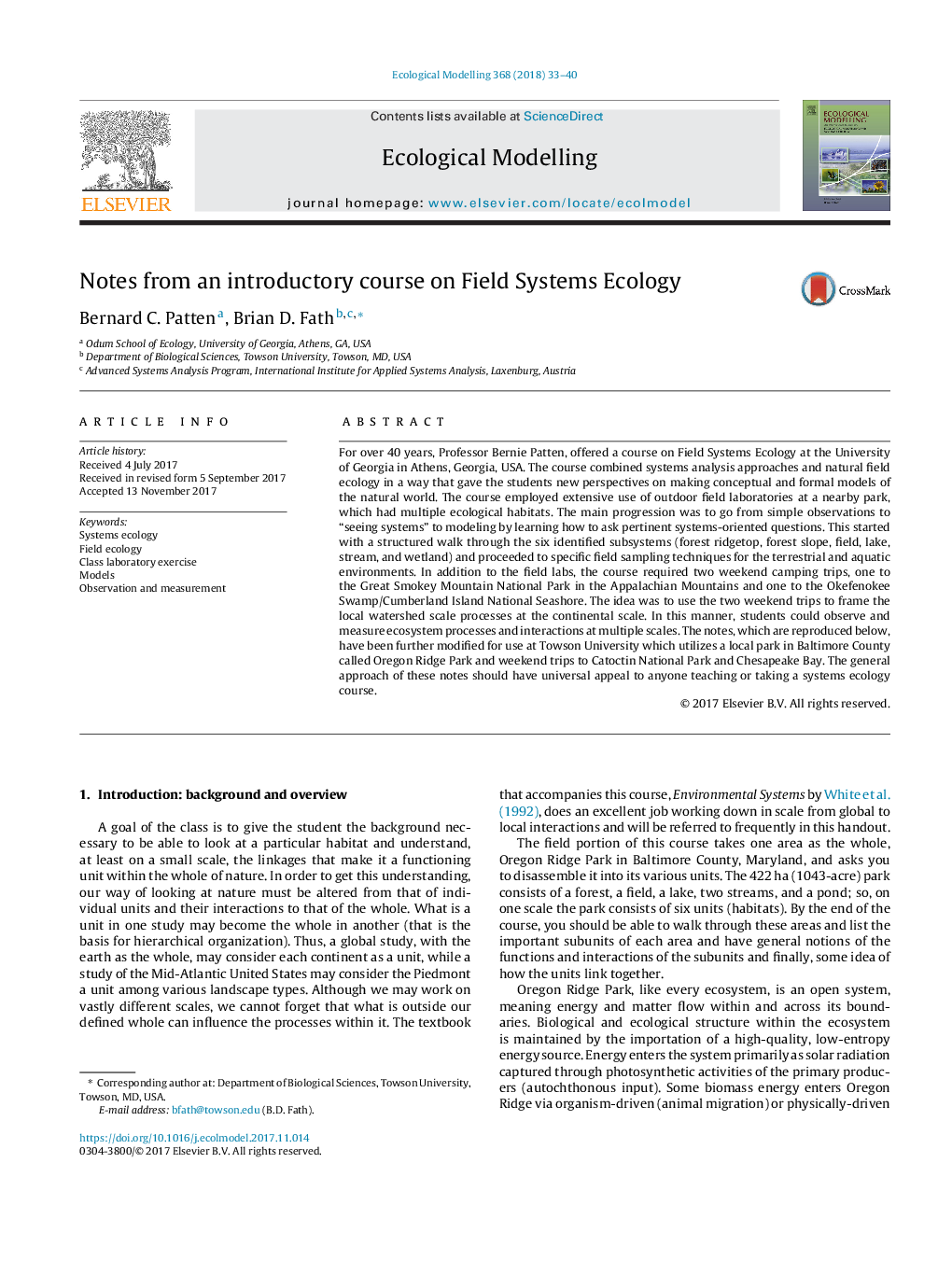| Article ID | Journal | Published Year | Pages | File Type |
|---|---|---|---|---|
| 8846128 | Ecological Modelling | 2018 | 8 Pages |
Abstract
For over 40 years, Professor Bernie Patten, offered a course on Field Systems Ecology at the University of Georgia in Athens, Georgia, USA. The course combined systems analysis approaches and natural field ecology in a way that gave the students new perspectives on making conceptual and formal models of the natural world. The course employed extensive use of outdoor field laboratories at a nearby park, which had multiple ecological habitats. The main progression was to go from simple observations to “seeing systems” to modeling by learning how to ask pertinent systems-oriented questions. This started with a structured walk through the six identified subsystems (forest ridgetop, forest slope, field, lake, stream, and wetland) and proceeded to specific field sampling techniques for the terrestrial and aquatic environments. In addition to the field labs, the course required two weekend camping trips, one to the Great Smokey Mountain National Park in the Appalachian Mountains and one to the Okefenokee Swamp/Cumberland Island National Seashore. The idea was to use the two weekend trips to frame the local watershed scale processes at the continental scale. In this manner, students could observe and measure ecosystem processes and interactions at multiple scales. The notes, which are reproduced below, have been further modified for use at Towson University which utilizes a local park in Baltimore County called Oregon Ridge Park and weekend trips to Catoctin National Park and Chesapeake Bay. The general approach of these notes should have universal appeal to anyone teaching or taking a systems ecology course.
Keywords
Related Topics
Life Sciences
Agricultural and Biological Sciences
Ecology, Evolution, Behavior and Systematics
Authors
Bernard C. Patten, Brian D. Fath,
